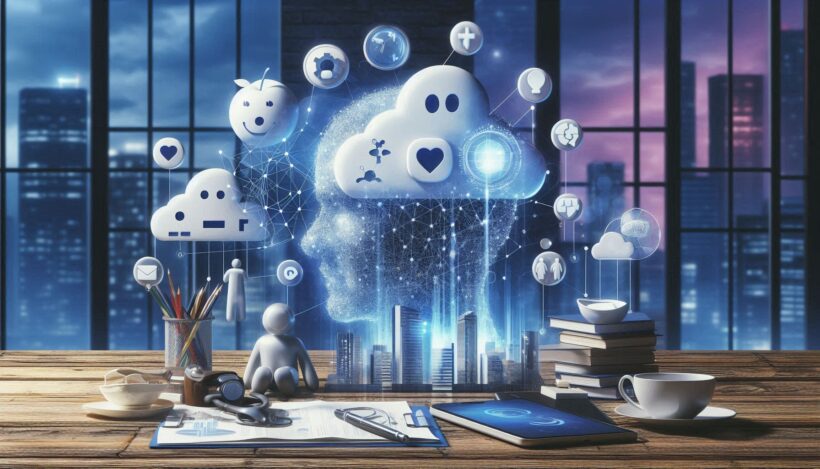Table of Contents
Social networking has become an integral part of our daily lives, offering ways to connect, communicate, and share experiences. While it has transformed how we interact, it has also sparked a debate about its impact on mental health. This article examines both the positive and negative effects of social networking on mental well-being, helping you navigate this complex digital landscape.
1. The Rise of Social Networking
With billions of users worldwide, social networking platforms like Facebook, Instagram, Twitter, and TikTok have changed the way we connect. Understanding their influence on mental health is essential, as these platforms can shape perceptions, emotions, and social interactions.
1.1 The Role of Connectivity
- Global Connections: Social networking enables individuals to connect with friends and family, regardless of geographical barriers.
- Support Systems: Online communities can provide support, particularly for those dealing with specific challenges or illnesses.
2. Positive Impacts of Social Networking on Mental Health
While social media can have downsides, it also offers several mental health benefits:
2.1 Enhanced Social Connections
- Maintaining Relationships: Social networks allow users to maintain relationships with friends and family, fostering a sense of belonging and community.
- Finding New Friends: Platforms facilitate connections with like-minded individuals, which can help combat feelings of loneliness.
2.2 Access to Mental Health Resources
- Information and Awareness: Social media can be a source of valuable information on mental health issues, promoting awareness and understanding.
- Online Support Groups: Many platforms host support groups where individuals can share experiences and seek advice, creating a sense of community.
2.3 Opportunities for Self-Expression
- Creative Outlets: Social media allows individuals to express themselves creatively, whether through writing, art, or videos, which can boost self-esteem and confidence.
- Sharing Personal Stories: Users can share their journeys, encouraging others and helping to break down the stigma surrounding mental health.
3. Negative Impacts of Social Networking on Mental Health
Despite the benefits, social networking can also have detrimental effects on mental well-being:
3.1 Comparison and Envy
- Unrealistic Standards: Social media often showcases curated, idealized lives, leading users to compare themselves unfavorably to others.
- Feelings of Inadequacy: This constant comparison can foster feelings of inadequacy, anxiety, and depression, particularly among young people.
3.2 Cyberbullying and Harassment
- Toxic Environment: Social networks can become platforms for bullying and harassment, affecting the mental health of victims significantly.
- Long-lasting Effects: The emotional impact of cyberbullying can lead to long-term mental health issues, such as anxiety, depression, and low self-esteem.
3.3 Information Overload
- Excessive Exposure: The constant stream of information can lead to anxiety and overwhelm, making it difficult for users to focus.
- Negative News: Exposure to distressing news and events can contribute to feelings of helplessness and despair.
4. Balancing the Impact of Social Networking on Mental Health
4.1 Practicing Mindful Usage
- Set Boundaries: Limiting time spent on social media can help reduce anxiety and improve overall mental health.
- Curate Your Feed: Follow accounts that promote positivity and well-being while unfollowing those that lead to negativity or comparison.
4.2 Seeking Professional Help
- Recognizing Signs: Be aware of when social media use negatively affects your mental health and seek professional help if needed.
- Utilizing Resources: Many online resources provide mental health support, making it easier to access help when needed.
4.3 Encouraging Positive Interactions
- Fostering Supportive Communities: Engage in positive conversations and support others in your network, contributing to a healthier online environment.
- Reporting Abuse: Take action against cyberbullying and harassment by reporting negative behavior to platform moderators.
5. Conclusion
The impact of social networking on mental health is multifaceted, with both positive and negative aspects. While it can foster connections, provide support, and offer opportunities for self-expression, it can also lead to comparison, cyberbullying, and information overload. By practicing mindful usage and encouraging positive interactions, individuals can harness the benefits of social networking while mitigating its drawbacks. Understanding this balance is crucial for maintaining mental well-being in our increasingly connected world. Embrace the power of social networking, but remember to prioritize your mental health above all.






